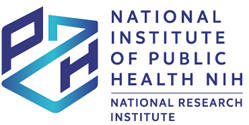ABSTRACT
The two-stage model for the development of early markers of hepatocarcinogenesis was applied to assess the potential of fungicide fenarimol (a-(2-chlorophenyl)-a-(4-chlorophenyl)- 5-pirimidinemethanol) as a possible promoter in this process. In this experiment the rats were subjected to partial hepatectomy (to induce proliferation), followed by the single (50 mg/kg bw) dose of diethylnitrosoamine (DEN) (initiator) and then, followed by the 26 weeks exposure to fenarimol administered in the olive oil suspension (250 mg/kg daily). The activities of gammaglutamyltransferase (GGTase), glucose-6-phosphatase (G-6-Pase) and alkaline phosphatase (APase) regarded as markers of early stages of hepatocarcinogenesis were measured biochemically and histochemically in the livers of exposed rats as well as in the respective positive and negative controls. Rats exposed to 2-acetylaminofluorene (2-AAF), instead of fenarimol, served as positive controls. It was found that in the full initiation/promotion regimen both 2-AAF and fenarimol induced the increase of GGTase activity in the liver and formation of GGTase-positive hepatocytes. However the exposure to fenarimol alone also increased GGTase activity, although this response was not observed in rats exposed to 2-AAF alone. The possible mechanisms and explanation for such types of responses were discussed, and conclusion has been drawn that fenarimol did not affect the rat hepatocarcinogenesis induced by PH and DEN.
You can change cookies settings in your browser. Restricted use of cookies in the browser configuration may affect some functionalities of the website.



